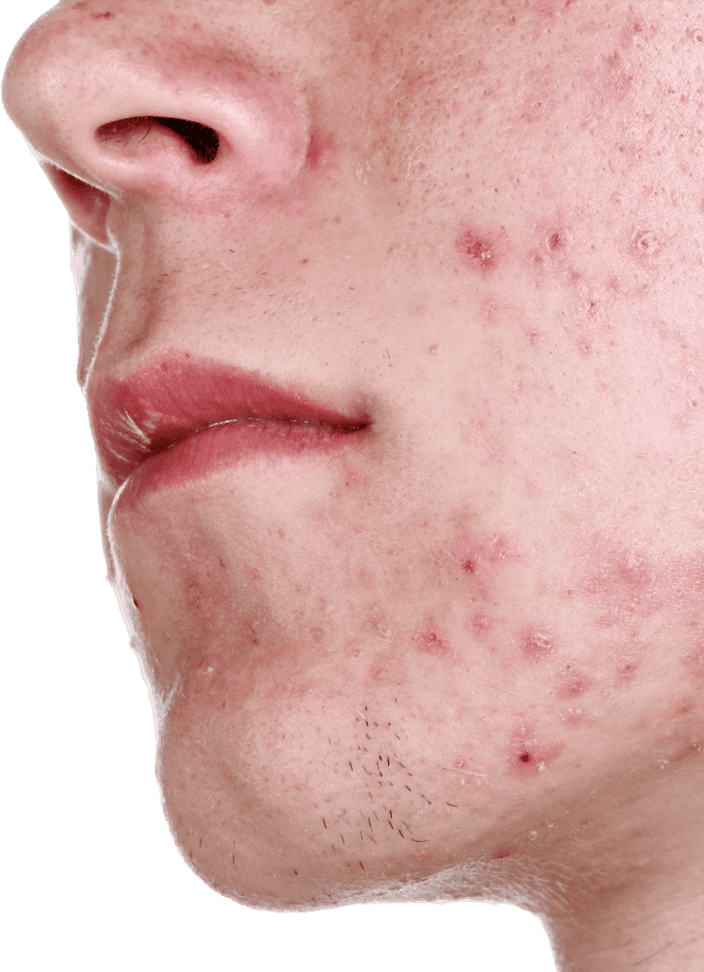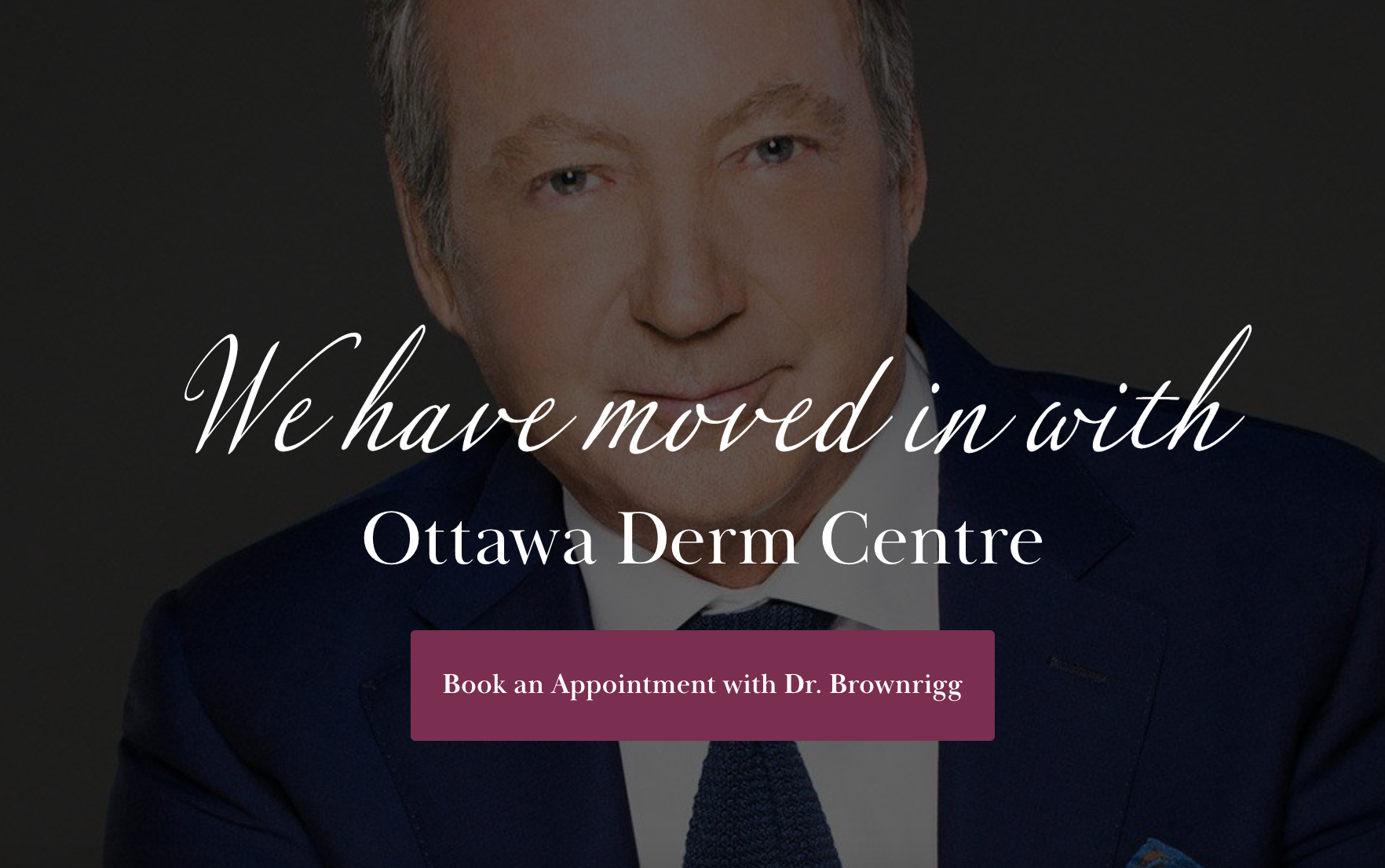
Acne
Acne can leave you unhappy with how you look and seriously impact your self-esteem.
Blemishes can appear as blackheads, pimples, or even deep, painful lesions. In some cases, it leaves scars.
What qualifies as acne?

Common Forms of Acne
Pimples
These small red bumps are what most people think of when they envision acne. While most common on the face, they can appear virtually anywhere on the body.
Whiteheads and Blackheads
Clogged pores are referred to as whiteheads when closed off and blackheads when open.
Cystic Lesions
This type of acne is characterized by painful, hard lumps beneath the skin and can often leave scars.
Genetics & Hormones Play a Huge Role
Acne is most common in teenagers but people of all ages can get it – even newborns! If the condition runs in your family, it’s likely you’ll get pimples too. Hormones are another major culprit, which is why teenagers so often struggle with acne. While stress doesn’t trigger acne, it can increase your risk of more severe breakouts.
But what actually causes breakouts?
Common Culprits of Acne: Excess Oil, Bacteria, & Hormones
Increased Oil Production
While our skin naturally produces oil to combat dryness, this oil can clog pores. Unfortunately, the pores often become inflamed as a result.
Bacteria
Once a pore is clogged, bacteria can further congest it and cause a pimple to form.
Hormonal Fluctuations
An excess in certain hormones, specifically androgens, can cause acne. This is why many women experience monthly breakouts well beyond their teenage years.
“People don’t realize how easy it is to treat.” Sophia Yen, MD, adolescent medicine specialist at Lucile Packard Children’s Hospital
So How Can I Prevent Pimples in the First Place?
Stay Diligent with Your Skin Care
Wash your face twice a day with a gentle cleanser and lukewarm water. Even more importantly, never go to bed with makeup on.
Read Your Labels
Use moisturizers and other products labeled “non-comedogenic.” This means they are specifically formulated to not clog pores.
Stop Touching Your Face
We all have a tendency to touch our face without thinking about it, especially if we have a bothersome bump. However, this can spread bacteria and worsen the problem. Popping a pimple can cause even more damage.
A Professional Diagnosis Can Determine the Best Course of Action
While most people can tell if they have acne or not, a doctor can determine which type of acne you are suffering from. Based off a simple visual exam and detailed medical history, they can recommend the most appropriate and effective treatment.
Topical and Oral Medications Are Extremely Effective
Lotions and Creams
If your acne is mild, consisting mainly of whiteheads and blackheads, topical treatments are often sufficient. Benzoyl peroxide, sulfur, and salicylic acid are trusted solutions which can be applied as gels, creams, wipes, cleansers, and lotions. In some cases, your doctor may recommend stronger prescription gels or creams, such as retinoids or topical antibiotics.
Laser Therapy, Facials, and Similar Treatments
Any type of skin treatment which gently exfoliates the skin, targets bacteria, and encourages cell turnover can potentially improve acne, including: laser acne treatment, IPL photofacials, and skin rejuvenation.
Oral Medications
Patients with more severe acne may require oral medications. Oral birth control and anti-androgen agents can correct hormone levels, while antibiotics may minimize the bacteria causing pimples. In the most severe cases, your doctor may recommend isotretinoin, commonly known as Accutane.
A Doctor Can Help You Achieve Clear Skin
Acne is a chronic problem for a huge number of teens and adults. Diagnosis and treatment are typically covered at least partly by insurance so all you need to do is reach out to a doctor. Schedule a consultation today to learn more.
